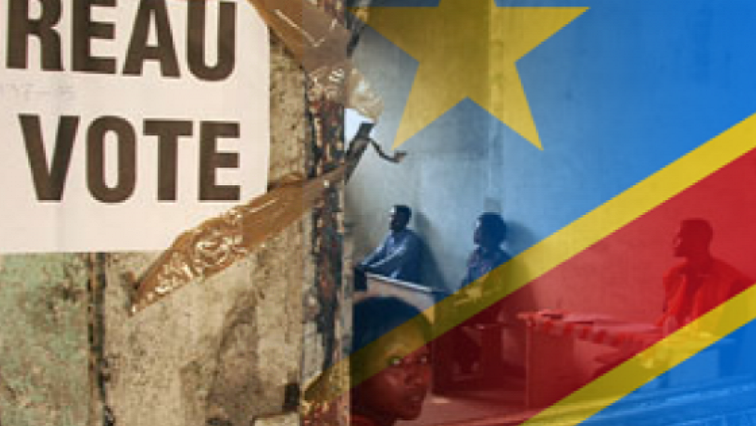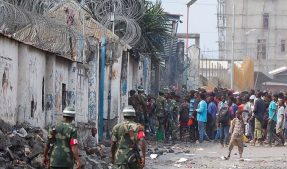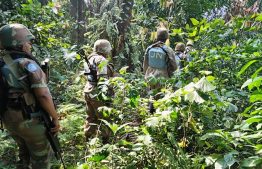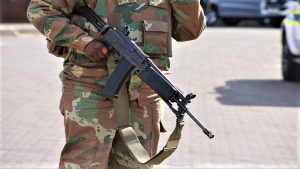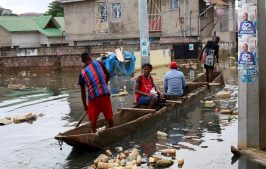The Democratic Republic of Congo (DRC) is gearing up for a rare round of elections, but as usual an aura of pessimism seems to override whatever optimism there is. Yet the very thought of holding elections ought to ignite hope for a much brighter future. Incumbent Joseph Kabila has faced the wrath of many democrats and international observers by seeming to overstay his welcome in the presidency of one of Africa’s wealthiest countries.
The DRC, a vast country which shares its borders with at least nine countries and its size is equal to that of Western Europe put together, has hardly benefited from its wealth of natural resources. Various administrations can, however, not exclusively shoulder the blame for the shambles that has characterized an otherwise beautiful country. For far too long the DRC has been plagued by international scavengers who have perfected the art of smuggling minerals out of the country. And to this day, they continue to suffocate the economy with shocking impunity.
The geographic location of the DRC coupled with its minerals is undoubtedly the envy of many. A quick online glance about the DRC’s resources reveals the following: “Limitless water, from the world’s second largest river, the Congo, a benign climate and rich soil make it fertile, beneath the soil abundant deposits of copper, gold, diamonds, cobalt, uranium, coltan and oil make it one of the world’s richest countries.”
The DRC is classified as a member of the Southern African Development Community (SADC), a region which is susceptible to severe drought. Agriculture is Africa’s key economic industry and water is therefore sacrosanct for the prosperity of the continent.
The Inga dam in the DRC is capable of mass water supply had the country not been forced to take the eye off the ball, distracted by unending sponsored internal conflict which seems permanently a mere button from civil war.
In the 1990’s I visited Rwanda as a guest of President Paul Kagame’s administration and as I was driven around Lake Kivu on a tour of the scenic country, we got off the boat and literally walked around south and north Kivu inside the DRC. The areas are under permanent occupation of the Rwandan army. President Kagame often uses as a pretext a threat seemingly long dead of Interhamwe, the Hutu militias who were part of the terrible genocide which left 800 000 people, mainly the minority Tutsis, dead.
Basically, the Joseph Kabila administration is hardly in charge of all parts of the country. The president’s father, Laurent Kabila, was assassinated by a member of the presidential guard at the end of the 1990’s. The political instability of the DRC is legendary. The country gained its independence from Belgium in 1960 when the stranglehold of the Belgian king Leopold (the 2nd) came to an end. Patrice Lumumba, the erudite and affable leader of the revolution which led to independence, became the first leader of a free Congo Kinshasa, as the DRC was known then. Hardly six months in office, Lumumba was assassinated allegedly by the Belgian secret service with the cooperation of the CIA.
The lengthy rule of President Mobutu Sese Seko which followed saw the looting and pillaging of state resources on a grand scale. Too many foreign militias and syndicates remain the biggest causes of instability in the DRC. They provide weapons and money to the local warring groups in order to do two things really: (1), to keep the DRC in a permanent state of war and instability and (2), to extract as much as possible minerals, including blood diamonds, and smuggle all those out of the country.
Today, the port city of Antwerp in Belgium is a flourishing home to diamond traders, cutters and polishers and is regarded as the world’s diamonds capital with connections to the country’s bleeding former colony, the DRC.
But Africa, too, has to shoulder some blame for the systematic destruction of a potential bread basket of the continent. Former president Thabo Mbeki’s African Renaissance sought to rebuild a continent with massive potential for self-sufficiency. Unfortunately his dream followed him out of public office. The DRC is in a desperate need for a leader who will inspire a deep sense of unity and patriotism. The country is crying out for its own Mandela who can draw together warring parties to the table and inspire them to thrash out a common future for the diverse people of the DRC. It is about time that such a leader emerges and begins to rebuild a battered economy and a country currently on the road to a failed state. No amount of foreign intervention will kick-start the DRC’s road to recovery. It has to start from within.
One of the minerals found in the DRC, coltan, is used in the manufacturing of cellphones. Imagine the revenue loss the DRC suffers as a result of smuggling the mineral out of the country.
In the elections to be held in the coming weeks, I hope and pray that whoever takes over from president Kabila will inspire confidence, just like some of the great leaders of Africa in the past such as Kwame Nkrumah, Julius Nyerere, Haile Selassie, Nelson Mandela, among others.
The time is now for a stable, prosperous DRC at peace with itself, next-door neighbours, the continent and the world. There is so much humanity can benefit from a prosperous DRC, but to pull through this beleagured country deserve the support of the entire African continent, and the world that cares.


